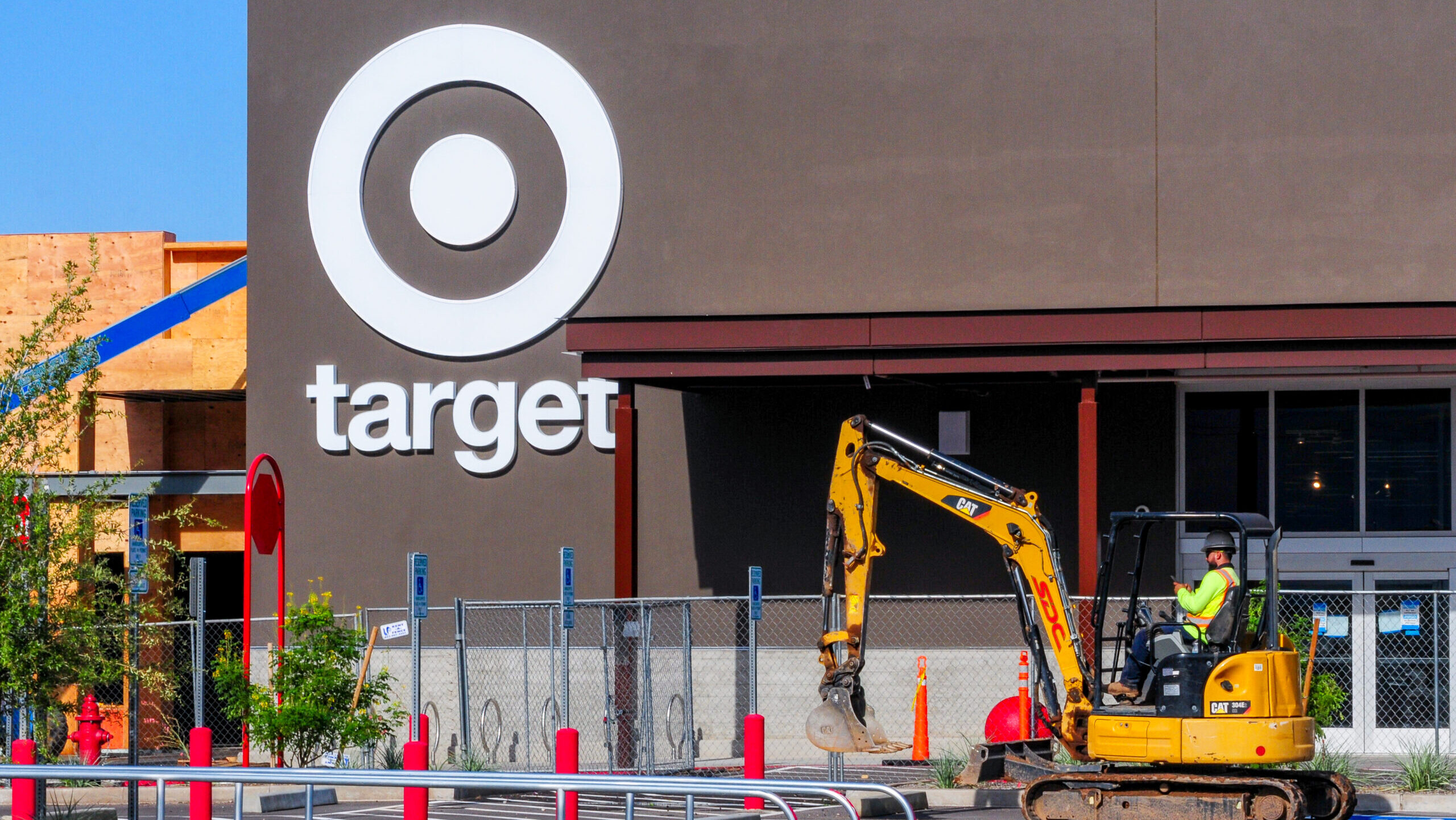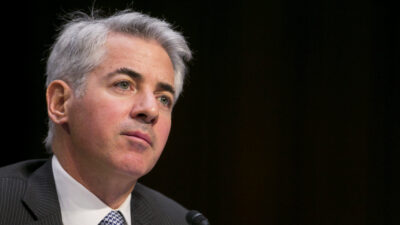Target Struggles as Wary Shoppers Prioritize Cost-Cutting
Wednesday’s earnings call also brought news that longtime target chief executive officer Brian Cornell is leaving his post.

Sign up for smart news, insights, and analysis on the biggest financial stories of the day.
Target may have topped expectations, but it hardly hit a bullseye.
In its second-quarter earnings report on Wednesday, the big box retail giant reported sales figures that both beat what Wall Street had penciled in and marked yet another period of year-over-year declines. It’s at least in part a casualty of war — trade war, that is.
At Your Discretion
Target shares are down roughly 50% from a 2021 peak, when the brand’s pivot back toward home goods, fashion, and wellness products coincided nicely with the freewheeling days of post-pandemic euphoria. But the good times, they don’t last. Roughly 50% of Target’s sales come from those very same discretionary spending categories (compared with about 40% for Walmart), which means that in times of waning consumer confidence and likely inflationary tariffs, the classic Tar-zhay sparkle looks a little too bright for most US shoppers.
“People are spending on essentials, but not really discretionary products right now,” R.J. Hottovy, head of analytical research at Placer.ai, told The Daily Upside.
Comparable sales have increased in just three of the past eight quarters, with Wednesday’s report showing a decline of 1.9% as growth in digital eased the effect of a drop at bricks-and-mortar stores open at least a year. A slew of other retail earnings this week offers clues as to where shoppers have headed instead:
- In its own earnings call on Wednesday, TJX — the parent company of TJMaxx, Marshalls, and HomeGoods — reported revenue that beat Wall Street’s expectations as its consolidated comparable sales figures grew 4% year-over-year. Unlike most big box retailers, TJX sources its products through thousands of individual deal-hunting buyers, which Hottovy said allowed it to benefit from tariff-induced supply shocks and cater to bargain-hunting consumers.
- Walmart, which reports later today, saw an increase in foot traffic in its most recent quarter, according to Placer.ai tracking data, marking a rebound from a downturn in the prior quarter. The big box king’s unmatched pricing power has allowed it to weather tariff shocks, while Hottovy says the data indicates the brand is still seeing an increase in higher-income consumers — the type who typically represented Target’s target demographic.
Mr. Inside Hire: Wednesday’s earnings call also brought news of a leadership change at Target. Longtime CEO Brian Cornell is leaving his post (though he will remain as executive chairman), while longtime executive Michael Fiddelke will step into the top spot. Fiddelke, who has risen through the ranks after starting as an intern in 2003, called his experience with the company an asset. Wall Street didn’t necessarily agree. Neil Saunders, managing director at GlobalData, told Reuters that Fiddelke’s hiring does not necessarily “remedy the problems of entrenched groupthink.” Shares of Target fell more than 6% on Wednesday.











